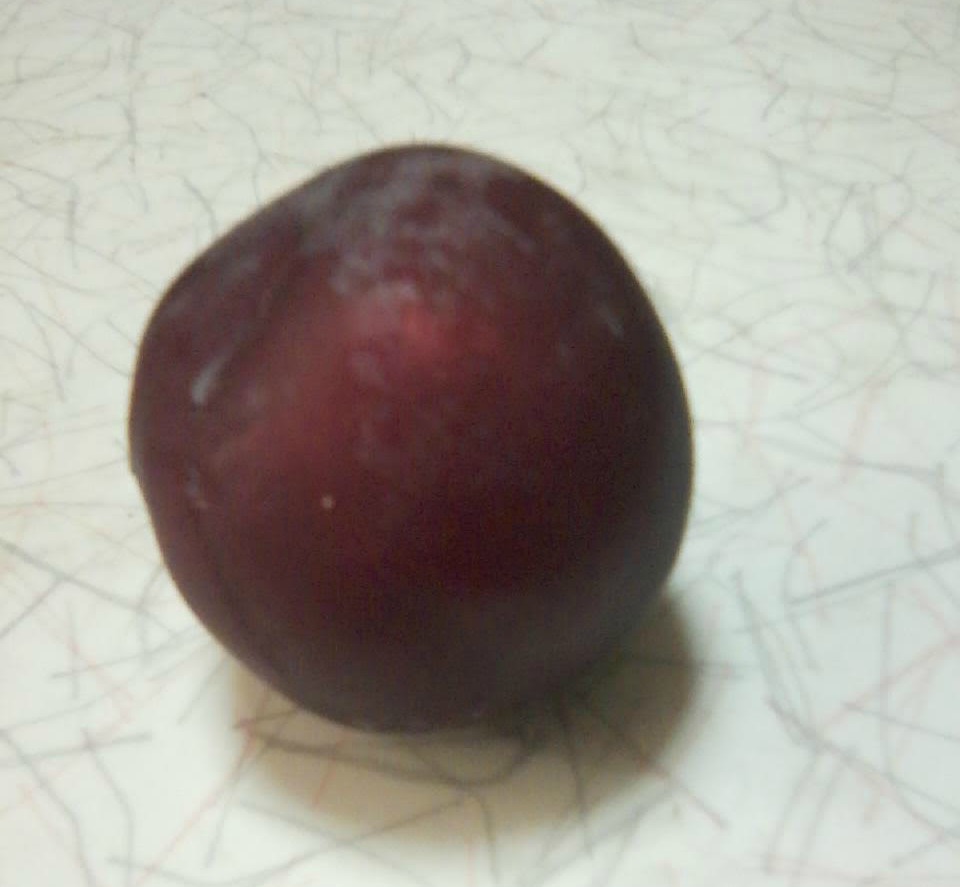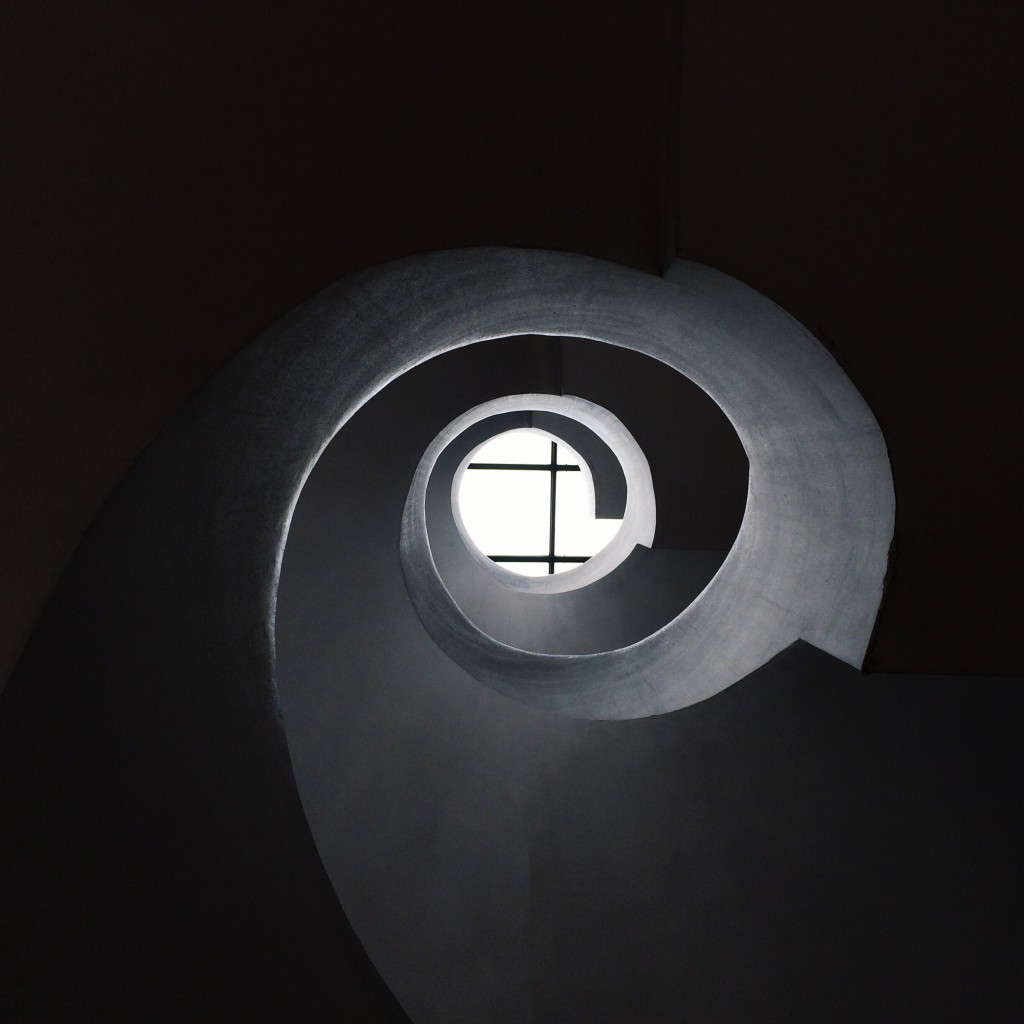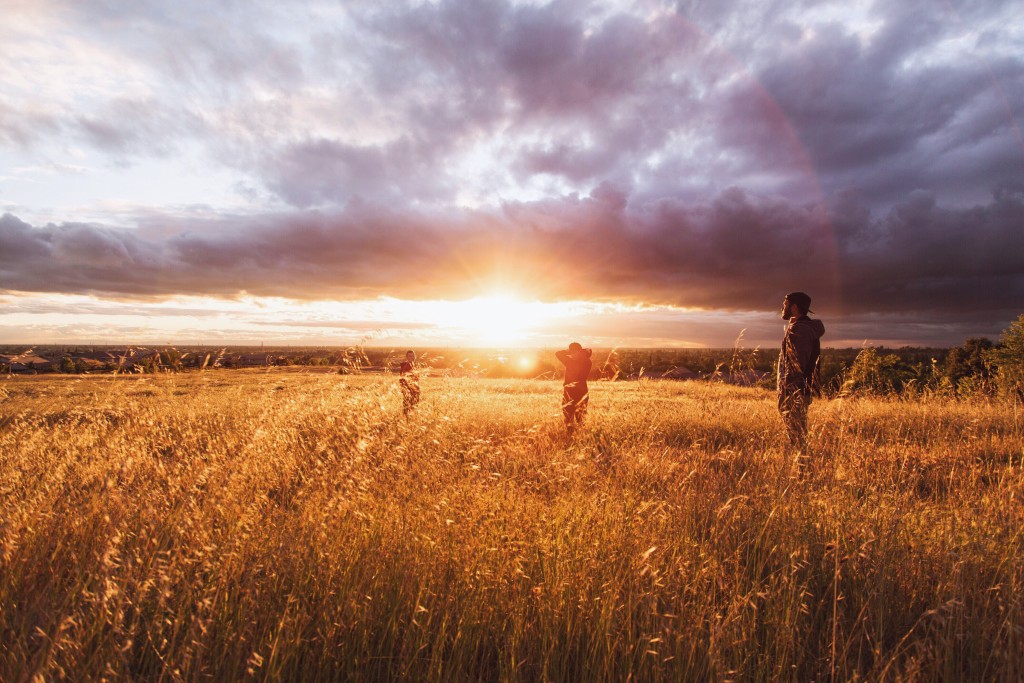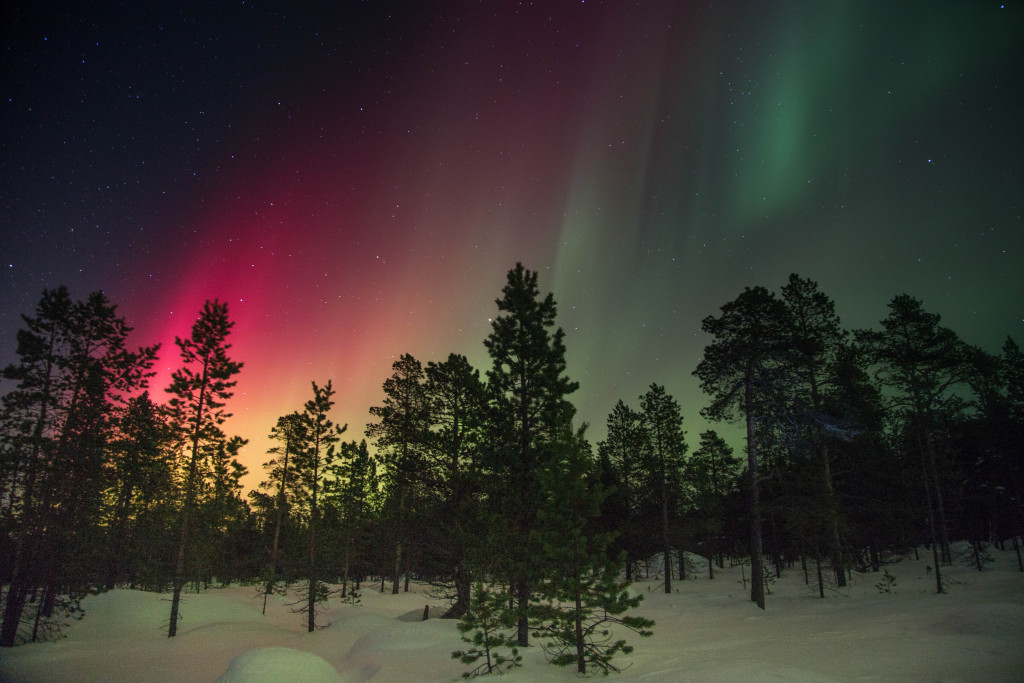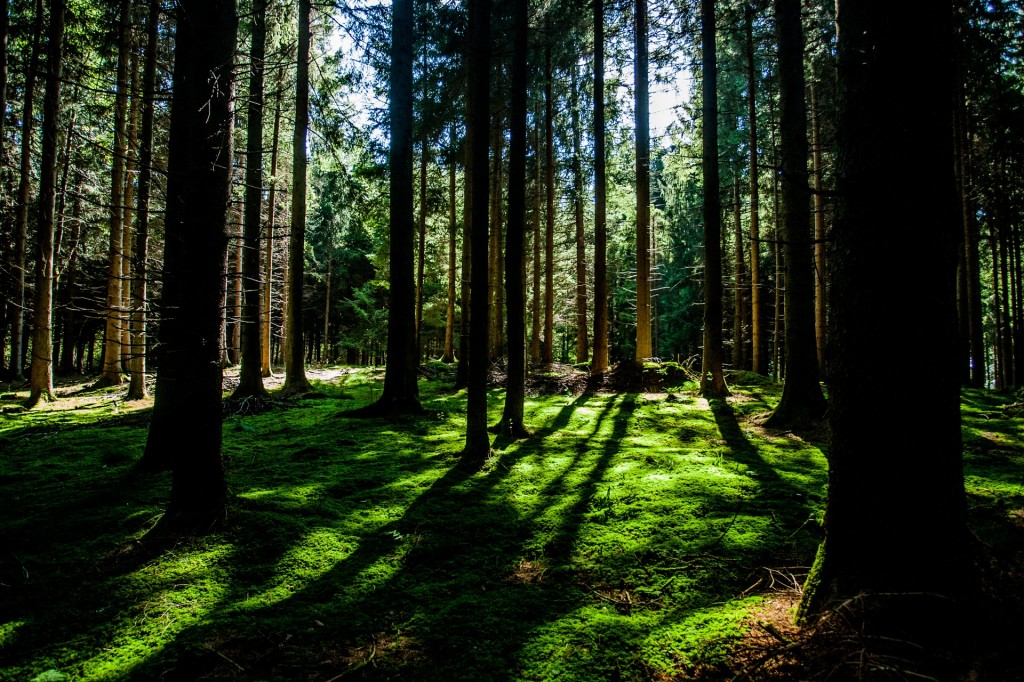I’ve been thinking about good and evil a lot lately. Maybe because I’m re-watching Star Wars with friends. What I find interesting is how so often people liken the forces of good and evil as a devil or angel on our shoulder where one force eventually wins out. I think good and evil is more nuanced than that, and liken each to either end of a tug of war battle. That also means when a person is closer to the middle, as in neither side has a clear victory, both sides tug harder for dominance. This isn’t just speculation, by the way, I notice the good and evil tug of war manifesting in the real world. Not only as a voice in my head, but in tangible ways.
For example, here’s something that happened earlier this week that’s not evil, but was clearly not engaging with the force of good. I noticed my neighbor’s plums fall over the fence that separates our properties. My neighbor is on the down slope of a hill and they will never be able to reach the plums that grow on my side of the fence because it’s too high and there’s a barrier. But because I’m higher up, those plums hang at a perfect level for me to pick them. The very top of their tree is about two feet above my head; in other words, the perfect picking height.
As I glanced out my window, I noticed ripe plums rotting on the ground. “Just look at those ripe plums going to waste!” I said. “How could I let that happen? Besides, those plums sit on my side of the fence, so is it really stealing? I mean, what’s ownership anyway.” With all those thoughts in mind, I started picking those plums, and wouldn’t you know it, a piece of dirt or perhaps a small rock flew into my eye. Ladies and gentlemen, the force of good communicating to me that, yes, it still counts as stealing. It is no coincidence I experienced pain after my somewhat-questionable actions.
The force of good shows up in other ways too. When our hearts start to pound, or our hands begin to sweat when we know we’re engaging in nefarious behavior, that’s the force of good saying, “Hey, maybe rethink this.” There are some people that ignore those messages though. What happens in those situations is the force of good exerts itself less and less, which makes sense because in a tug of war battle, if one side is likely to win, the other stops pulling as hard.
Unlike in real tug of war though, neither good nor evil stops pulling. They’re very persistent those two. That means there’s always a chance for redemption. My spiritual teacher was such a believer in redemption that his first disciple was a known thief. In fact, my teacher taught the guy meditation after the thief pulled out a dagger and threatened to rob and kill my teacher! After the meditation lesson, the thief gave up his old ways and really turned over a new leaf. So, yeah, there’s always a chance for good. Similarly though, there’s always a chance for evil.
I guess what I’m saying here is it’s easy to get complacent. To think, “I’m a good person so I would never do that,” or “I’m such a screw up, there’s no hope for me,” but neither are true. There’s a thin line between good and evil and it’s easy to start moving in either direction, which I think is illustrated quite well in Star Wars. Maybe we need to adopt Mad-Eye Moody’s motto from the Harry Potter books and maintain “Constant vigilance!”
I dream of a world where we pay attention to what we’re doing. A world where we understand when the universe is trying to communicate with us, to encourage us to side with the force of good, and we do so. A world where we understand there’s not a lot of difference between good and evil so it’s up to us to decide which side of the tug of war battle we’d like to be on.
Another world is not only possible, it’s probable.
Sometimes I feel like a marathon runner who forgot where the finish line is. It’s like blackberries growing on the side of the course distracted me and I decided to veer off to pick them. But then my hands got sticky so I had to find some water to wash them off with. And then while looking for water, I found a lake and decided to take a swim, and by that point the finish line is a distant memory.
Doesn’t life seem like that sometimes? To paraphrase Elbert Hubbard, one damn thing after another? I keep chasing after one thing or another thinking it will make me happy, but it never does. Or I’m happy for about five seconds and then it’s on to the next thing. I am on a search for infinite happiness. I’ve been sampling the goodies Earth has to offer and infinite, unlimited happiness ain’t here because by definition everything on Earth is limited and finite. This is why people turn to spirituality in the first place, we are craving mind-blowing bliss of a permanent nature. How do I find that? Especially when there are so many cool things to savor? It’s easy to get distracted, I mean, just look at those blackberry bushes.
Some people say the way to no longer get distracted by the world is to withdraw from it. Go to a cave or a cabin in the woods with no wifi or cellphone service. Meditate all day long and immerse yourself in thinking about God. I don’t know about you, but after a week of that, I start to go stir crazy. In the words of my father, I become “bored out of my gourd.” There are so many cool things in the world! I don’t want to shut myself off from everything and everyone. Doesn’t sound very fun to me.
This dovetails into the post I wrote last week about the the reincarnation merry-go-round. I said the only way to get off the ride is by making everything the divine, because that way we’re like Teflon – nothing sticks to us. We don’t incur the consequences of any actions negative or positive. For instance, when I eat an apple think, “I am eating God in the form of this apple.” That way I’m savoring all that the world has to offer, but I’m not getting caught up in it. I’m not getting distracted or swerving off course from my ultimate goal of merger with the divine.
This concept is what I believe the Bible verse means in 1 John 2:15: “Do not love the world or the things in the world. If anyone loves the world, the love of the Father is not in him. For all that is in the world – the lust of the flesh, the lust of the eyes, and the pride of life – is not of the Father but is of the world.” What we’re striving for is remembering what the true form and the true source of everything is.
I can count the times I’ve been able to accomplish this task on one hand. It’s hard, yo, but when I’ve been able to feel into it, to really know the apple I’m eating is God in the form of this apple, wow. Incredible. Amazing. What I love about this practice is instead of making bliss and enlightenment a future goal, something that happens to me down the road, I’m doing it now. I’m immersing myself in the cosmic ocean and swimming in it this very moment.
To recap, making everything the divine, or the divine in the form of an object, not only stops the reincarnation cycle, but also ensures I’m still on the path toward my goal AND experiencing bliss along the way. I’d call that a win.
I dream of a world where we’re all able to experience bliss. A world where we’re able to feel everything comes from the divine and is the divine. A world where we make enlightenment a current goal. A world where we chase after what will make us happy permanently.
Another world is not only possible, it’s probable.
Reincarnation is a belief system that makes sense to me; it fits in with the experiences I’ve had and the people I’ve met. Sometimes I meet someone and our connection is instantaneous, as if we’ve known each other before. And I’ve visited places where my feet seemed to know the way even if my brain didn’t, which suggests to me I’ve been there before in another life.
Reincarnation seems to me like a merry-go-round: I’m born, I live, I die. I’m born, I live, I die. On and on it goes. Death is like changing to a different horse – the circumstances are a bit different, but I’m still on the merry-go-round. I’m starting to think I’d like to get off the ride and try something new. But if death is not an exit strategy, just a chance to change horses, what to do?
According to the spiritual philosophy I’ve read,the only thing to do is to stop taking ownership for everything and make it about God/Brahma/Source/the divine. Instead of thinking, “I’m browsing the internet,” think, “The divine is browsing the internet.” I know, this is where my merry-go-round analogy falls apart, but what I’m trying to say, is instead of making everything about me, I have to make everything about God if I want to get out of the cycle of reincarnation. And that means everything, which already fits in with the notion I wrote about that everything contains consciousness.
It means God is the one typing this blogpost, it means God is the one reading this blogpost, it means God is this blogpost. I can’t take credit for any of my actions because as soon as I identify with my ego, that means for better or for worse I have to undergo the consequences and repercussions. Sometimes the consequences are pretty cool, like winning an award, but if the goal of my life is really to dance with the divine and stop the reincarnation cycle, then I don’t want any consequences from my actions either negative or positive.
There’s a pretty popular Sanskrit chant/mantra that sums this up well. Some people chant it before eating or when they get out of the shower. The translation is:
Salutations to the ancestors, salutations to inventors. The act of offering is Brahma; that which is offered is Brahma; the one to whom the offering is made is Brahma; and the person making the offering is Brahma. One will merge in Brahma after completing the duty assigned to him/her by Brahma.
I know that’s a lot of the word “Brahma.” Like I said to my dad yesterday, don’t get hung up on the word. Find one that resonates. For me, right now, saying Brahma doesn’t mean much. But if I say everything is God or the divine, that works better. The point is to start to get out of my own head a little and recognize the world is a bigger, broader place than what I realize. And also not to take things so seriously because instead, I recognize I’m an instrument. Life isn’t about me and my happiness, it’s about what can be worked through me. When I start to view things from that perspective, I’m closer to getting off the merry-go-round.
I dream of a world where we set our egos aside. A world where we let ourselves be instruments. A world where we make everything about the divine. A world where we stop accumulating actions and reactions and finally get off the reincarnation merry-go-round.
Another world is not only possible, it’s probable.
One of the things that’s been bugging me is the disposable nature of the goods our society makes. Appliances aren’t built to last anymore, they’re built to break, because if something breaks then we’ll buy another one.
A few years ago I had to return a cable box or internet router, something like that, to AT&T. The UPS store THREW AWAY perfectly good power chargers and cables because AT&T doesn’t take them back. That means working, functional cords and cables end up in a landfill. I’m angry just thinking about it. Where is the reverence for life? Why aren’t we holding inanimate objects as sacred? Should inanimate even be sacred? Is something only sacred if it has a soul? Do inanimate objects have a soul?
When I stare into the eyes of something living and breathing, like a cat, it’s easy to say, “Yes, this creature has a soul.” But what about something like a rock? Or something man-made like concrete?
In my quest for the answer, I turned to the work of my spiritual teacher, who seems to have written about everything. He said there are two components to everything in the world: consciousness and Prakriti. Prakrti is a Sanskrit word that has no English equivalent but is similar to nature, or creation. Prakrti has to use consciousness to create anything; it’s the basic building block for all of life. It’s like a sculptor using clay to mold different shapes: The clay becomes a pot, a vase, a cow, but its origination is still clay.
Obviously there’s a difference between a cat and a calla lily (many differences, actually) and part of that difference according to my spiritual teacher, is the exertion of Prakrti. When the force of Prakrti is strong, the creation becomes more dense or crude. When the force of Prakrti is weaker, the creation becomes more light or subtle. If I’m maintaining my clay analogy here, Prakrti can be likened to soil and consciousness to water. The more Prakrti, the more soil, the thicker the clay. The more consciousness, the more water, the thinner the clay. A rock is very crude and dense so it has more Prakrti than consciousness, but it still has consciousness.
If a rock has consciousness, what does that mean for us? For me, yesterday as I walked down the street, my feet pounding the pavement, it meant the world took on a different hue. It meant I starting thinking about how concrete has a consciousness. How everything around me is sacred and an expression of consciousness/source/the divine. No longer is a piece of cardboard a meaningless bit of disposable packaging, but instead something more precious that it pains me to toss away so easily. Everything suddenly becomes more valuable and something I want to express my reverence for.
I’m not sure I can articulate what I mean, but there’s something about knowing that the keys upon which I type have consciousness that makes the experience more transcendent and special. It brings out the caretaker in me who wants to make sure every object is used to its fullest capacity. It changes my mindset from, “I can throw this away and always get another one,” to, “I want to cherish and reuse this for as long as I can.”
I dream of a world where we all have a reverence for everything. A world where we treat ourselves and everything around us as sacred. A world where we cherish each and every thing in the known universe because we recognize it, too, has consciousness.
Another world is not only possible, it’s probable.
The post I wrote last week about chasing likes made me question everything else in my life. Where am I headed? What is it I hold dear, and what, exactly is the goal of my life? Up until this week, I would say I’ve had a foot each on two different horses. One horse is headed toward self-realization and service to humanity. The other horse is headed toward name and fame, wealth, love, and making money doing what I love.
When I realized accolades and accomplishments don’t have any lasting effect, that they don’t make me happy for long, I started to wonder about the other things I’ve been chasing after. What about the desire to be a best-selling author? Or to find a great love? Or to make a living writing and talking about spirituality? That last one could turn into a whole separate blogpost, but for now, all I’ll say is I’ve realized I don’t have to monetize everything in order for it to be valuable.
What about all those once-in-a-lifetime experiences? All the places I’ve traveled to? Is that the goal of my life? Should it be? Chasing experience after experience? My dear friend Amal Jacobson discussed this in an essay he wrote about such an experience. He said, “But what did it all amount to? Experiences I could pocket away like fashion accessories? Something I could uselessly recount to somebody someday as proof that I had lived?” That’s been the case for me. When I want to seem exciting and interesting I’ll trot out a travel story, or casually mention that time I did whatever. But for what? As proof I lived?
I’m going to quote the great bard himself, William Shakespeare, who said:
Tomorrow, and tomorrow, and tomorrow,
Creeps in this petty pace from day to day,
To the last syllable of recorded time;
And all our yesterdays have lighted fools
The way to dusty death. Out, out, brief candle!
Life’s but a walking shadow, a poor player,
That struts and frets his hour upon the stage,
And then is heard no more. It is a tale
Told by an idiot, full of sound and fury,
Signifying nothing.
In the end, the things I’ve longed for will crumble into dust. My life is but a brief candle, full of sound and fury, signifying nothing unless I change which horse I’m riding. I’m coming to the same conclusion as Jim Carrey who said, “I hope everybody could get rich and famous and will have everything they ever dreamed of, so they will know that it’s not the answer.” I think you’re right Jim, those things are not the answer. Infinite happiness does not come from finite objects, it can only come from something infinite. That something is God/cosmic consciousness/brahma/higher power/source – an entity with many names. I will gladly accept blessings along the way such as a great love, but I can no longer make finite things the goal of my life.
It’s become clear to me that the goal of my life is to merge with the Supreme and to help others along the way. To be of service in any way I can, but to recognize first and foremost I am an instrument. I am a finite self looking for an infinite Self and nothing short of that will give me the infinite happiness I seek. I get glimpses of infinity when I meditate – not all the time, but enough to assure me I’m headed in the right direction. I have that wish for others too.
I dream of a world where we all take a look at what the goal of our lives is. A world where we recognize what will give us the happiness we truly seek. A world where we each dance with the divine and awaken the spirit within.
Another world is not only possible, it’s probable.
I am obsessed with “the truth.” Maybe it’s a hallmark of being a journalist, but I’m constantly searching for “the Truth” with a capital T. When people throw out platitudes like “the truth is relative,” and “everybody has their own truth,” I’m unsatisfied because why? Why is the truth relative? Why does everyone have their own truth?
Last week, I wrote about logic versus intuition, and defined intuition as a reflection of consciousness. I also said perhaps the reason why intuition can be wrong is that the reflection isn’t clear and maybe it’s like smudges on a mirror.
This week I did some more investigation because I wasn’t fully satisfied with that answer. My spiritual teacher says there are “layers of the mind” and this affects the different ways in which humans operate. One layer is responsible for satisfying what we sense through the body. So, for instance, if I’m cold and reach for a blanket, that’s one layer of the mind. Another layer of the mind deals with conscious thought like problem-solving and intellectual reasoning.
The layer I’m interested in at the moment is the layer where intuition comes in. My teacher uses a Sanskrit word that I am sure to mispronounce, but the English translation is “supramental” or “higher mind.” This is the layer responsible for scientific discoveries and creative insight. When the lower levels of the mind are quiet, the higher mind comes through. This is what Michelangelo is referring to when he likened the creative process to “a seizure of the soul” or when Albert Einstein said in reference to discovering relativity, “There is no logical way to the discovery of these elemental laws. There is only the way of intuition.”
So what happens after the message gets delivered, if you will? When a person gets an intuitive hit, it still has to filter through their mind and sift through biases and experiences, aka, the smudges on a mirror. That explains why the truth is relative – because each person has their own experiences and biases the intuitive message is coming through. For each person, the reflection of consciousness looks a little bit different.
That means there is an absolute truth, but I am not able to access it because my mirror is too dirty. The quickest way to clean the mirror, according to my teacher, is to meditate because meditation silences the lower layers of the mind and allows a person to access the higher ones. If you can believe it, the layer where intuition lives is not the highest layer of the mind! The higher layers are ones where duality ceases to exist and a person sees everything as an expression of Spirit. But that is perhaps another post for another time.
I dream of a world where we all quiet our minds and allow something greater than us to come through. A world where we understand that behind the relative truth is an absolute truth that maybe we can’t quite see. A world where we each seek to know that absolute truth and arrive at those higher layers.
Another world is not only possible, it’s probable.
I’ve been thinking a lot this week about logic and intuition. I notice that for the most part people seem to advocate one or the other.
On the logic side, science and rationality are worshipped. Some people disregard anything that cannot be proved scientifically. If there’s no randomized controlled trial, the thing is full of crap. This is why people say homeopathics are snake oil, despite the loads of anecdotal evidence that say otherwise. Maybe what’s happening is our scientific instruments aren’t sensitive enough yet to measure homeopathics.
Also, the thing about randomized controlled trials is they’re imperfect and there is often conflicting evidence. In radiology, for instance, a subject I am very familiar with as writing about CT scans, MRIs, and ultrasounds is my primary source of income, there’s a huge debate about breast cancer screening. A study from Canada recently stated breast cancer screening causes more harm than good. The researchers argue breast cancer screening leads to overdiagnosis, or diagnosing tumors as cancerous that may not become problematic. In other words, diagnosing cancer too much.
On the other hand, there are also randomized controlled trials stating the opposite, that breast cancer screening causes early diagnosis, i.e., catching a cancer early, and not overdiagnosis. Advocates vehemently argue the true harm to women is from these scientific studies that scare women into believing they don’t need their regular mammograms. Who is right?
For those who eschew science and rationality, there’s a belief in the infallibility of intuition, that intuition is always right. Except, that’s not always true and not everybody’s intuition is equally valid. How many times have we watched a contestant on The Bachelor declare they know they’ll receive the final rose? That “their gut” tells them they’ve found the love of their life and then the person ends up being wrong? Clearly there’s something going on here.
My spiritual teacher defines intuition as a reflection of Consciousness, or Spirit. He also says that meditation leads to a clearer reflection of Consciousness. In that context, it makes sense why people can be off when they say they’re using their intuition; either the person is really tapping into their ego, or their reflection to Consciousness isn’t clear. Perhaps it’s like a mirror and some people have smudges all over it so they can see some of the reflection but not all of it.
I have a tendency to completely accept something a person says if they say it came from their intuition, especially if it can’t be scientifically proved. However, people, me included, are wrong sometimes! I have a brain so I need to use it!
My spiritual teacher also says:
The highest treasure of human beings, distinct from other creatures, is their intellectual superiority. Had there been no intelligence in humans, they would hardly be different from other animals. This philosophical consciousness will lead humanity to greater intellectuality. And this constant pursuit of intellectuality leads one to its furthest limit, where intuition begins. – Shrii Shrii Anandamurtii
Intuition is valued, of course, but so is intellect. Maybe it’s time I start using both logic and intuition. Maybe we all need that integration.
I dream of a world where we don’t accept something as true just because someone said they had a feeling about it. And at the same time, I dream of a world where we understand some things are beyond logic, some things don’t make sense and they may never will. A world that’s not logic versus intuition, but a world that relies on logic and intuition.
Another world is not only possible, it’s probable.
- « Previous
- 1
- …
- 14
- 15
- 16

